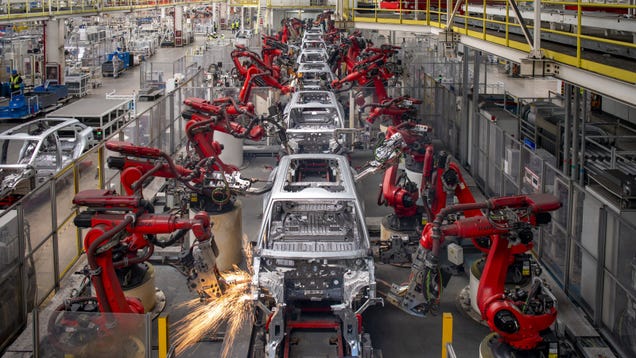The Automotive Industry’s Evolving Landscape: What You Need to Know
Understanding the Current State of the Automotive Industry
As of October 2024, the automotive industry is undergoing significant transformations driven by technological advancements, changing consumer preferences, and environmental considerations. The shift towards electric vehicles (EVs) is not just a trend; it is becoming a necessity as governments worldwide implement stricter emissions regulations. According to a recent report from the International Energy Agency, global electric car sales surged by 50% in 2023, highlighting a clear pivot in consumer behavior.
This transition is not without its challenges. Traditional automakers are grappling with the need to innovate while maintaining profitability. The competition is fierce, with new players entering the market and established brands racing to develop cutting-edge technologies. This article delves into the key developments shaping the automotive landscape today, addressing concerns and questions that consumers and industry stakeholders may have.
The Impact of Electric Vehicles on Employment
One of the most pressing concerns in the automotive sector is the potential job losses associated with the shift to electric vehicles. As manufacturers pivot towards EV production, there are fears that traditional manufacturing jobs will be lost. A recent study by the Center for Automotive Research indicates that while the transition to electric vehicles could lead to a loss of approximately 75,000 jobs in the short term, it could also create over 100,000 new jobs in EV manufacturing, battery production, and related sectors by 2030.
This transition highlights the need for workforce retraining and education. Programs aimed at reskilling workers for roles in EV technology and manufacturing are essential to mitigate the impact of job displacement. Companies and governments must collaborate to ensure that the workforce is prepared for the future of automotive production.
Consumer Preferences: The Rise of Sustainability
Today’s consumers are increasingly prioritizing sustainability in their purchasing decisions. A survey conducted by Deloitte found that 70% of respondents are willing to pay more for a vehicle that is environmentally friendly. This shift is prompting automakers to invest heavily in sustainable practices, from sourcing materials responsibly to implementing energy-efficient manufacturing processes.
For instance, Ford has committed to achieving carbon neutrality globally by 2050 and is investing $50 billion in EV development through 2026. This commitment not only addresses consumer demand but also aligns with global sustainability goals. As consumers become more environmentally conscious, automakers that prioritize sustainability will likely gain a competitive edge.
Technological Innovations Driving Change
The automotive industry is at the forefront of technological innovation, with advancements in autonomous driving, connectivity, and battery technology reshaping the driving experience. Companies like Tesla and Waymo are leading the charge in autonomous vehicle development, promising safer and more efficient transportation solutions.
Moreover, the integration of artificial intelligence (AI) and machine learning in vehicle systems is enhancing safety features and improving user experience. For example, advanced driver-assistance systems (ADAS) are becoming standard in many new vehicles, providing features such as lane-keeping assistance and adaptive cruise control. These innovations not only make driving safer but also pave the way for fully autonomous vehicles in the future.
Challenges Ahead: Supply Chain and Infrastructure
Despite the promising developments, the automotive industry faces significant challenges, particularly concerning supply chain disruptions and infrastructure development for electric vehicles. The COVID-19 pandemic exposed vulnerabilities in global supply chains, leading to shortages of critical components like semiconductors. This has resulted in production delays and increased vehicle prices.
Additionally, the lack of adequate charging infrastructure remains a barrier to widespread EV adoption. According to the U.S. Department of Energy, the country needs to install millions of charging stations to support the growing number of electric vehicles. Investments in infrastructure are crucial to ensure that consumers feel confident in transitioning to electric vehicles.
Navigating the Future of Mobility
As we look to the future, the automotive industry is poised for unprecedented change. Stakeholders must remain adaptable and responsive to evolving consumer demands and technological advancements. Collaboration between automakers, governments, and technology companies will be essential in addressing the challenges and seizing the opportunities that lie ahead.
In conclusion, the automotive industry’s transformation is a multifaceted journey that requires careful navigation. By understanding the implications of electric vehicle adoption, the importance of sustainability, and the role of technology, consumers and industry players can make informed decisions that contribute to a more sustainable and innovative future in mobility.

